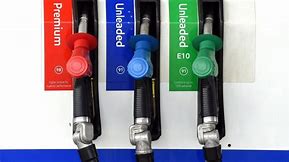Fleet decision-makers are being warned that the global semiconductor shortage will have a greater impact on the automotive industry than the pandemic.
Every car- and van-maker is being impacted by the computer chip crisis, with some delivery times for cars lengthening from three to six months, and many new vans not expected to be delivered until 2022.
Almost 95% of fleets responding to a Fleet News poll said they were experiencing vehicle delays.
Vehicle production lines have been temporarily halted, focus has been shifted to high demand vehicles and some options are not being offered.
Tom Blackie, founder and CEO of vehicle software company VNC Automotive, said: “In conversations with clients and suppliers, it’s become clear that the effects of the semiconductor shortage will long outlast the pandemic, and will potentially have a far more serious impact on sales and future development.”
Blackie says that some of the company’ suppliers are seeing prices for chips that are more than 30 times higher than before.
“At that level their use is no longer sustainable,” he said. “We’re even seeing vehicle buyers and fleet operators having to consider purchasing models that aren’t on their preferred lists because that’s all that’s available.
“At a time when the industry is asking people to consider making the switch to EVs, supply restrictions are leaving them frustrated.”
Many companies had cut orders for semiconductors, believing the pandemic would negatively impact demand, which led suppliers to reduce capacity.
However, the opposite was true – global demand for semiconductors grew by 15% last year – and, with global manufacturing based on a handful of factories, a fire at a semiconductor plant in Japan and power outages in Texas due to storms exacerbated the problem.
It is an issue for the auto industry as there can be between 50-to-1,000 semiconductors in a vehicle dependent on its complexity.
The computer chips feature in everything from infotainment systems and brake sensors to parking cameras and power steering.
Fleet communication key to managing chip shortage
Ford’s fleet director, Neil Wilson, told Fleet News: “We have seen some impact from the semiconductor shortage. Our global production was down 17% in Q1 which was in line with what we expected.
“The situation is fluid, but customers need transparency to be able to plan, which means keeping lines of communication open. We will have to make product changes to protect lead times.
“I think the issue will be around for a whole – probably until Q1 next year. It will ease, but there will be challenges going forward and we have to be good at reacting to those challenges. Lead times are different per model; some LCVs are into next year if you order now.”
On its most recent earnings call, Tesla’s CEO Elon Musk covered the issue of substituting alternative chips into production vehicles – having to write the new firmware in a “matter of weeks”, and the “intense effort” this approach required.
Nissan’s fleet director, Peter McDonald, says that delays are not all down to the chip shortage. “We have to overcome building a car in a Covid-safe environment which led to delays and then the overlay of component shortages, plus port shutdowns and the Suez Canal issue,” explained McDonald.
“We are working with suppliers to get components, but we are seeing longer lead times on vans.
“We have the added idiosyncrasy of launching Qashqai this year so the run out of the old car has also impacted on supply. It’s a big problem, but it’s also a global issue.”
Robert Morris, Volvo’s head of fleet and remarketing, described the semiconductor shortage as “volatile”.
“We have been impacted in terms of our overall volume plans for the year, although we don’t, at this moment in time, see that being significant,” he said.
“We’re working closely with our factory colleagues to ensure that we get the right products supplied at the right time as soon as we can.”
He added: “We are being open and upfront with customers in terms of lead times. We’ve created a lead time guide for our leasing partners, which is something I had wanted to do anyway, and we’re looking to extend that to corporate customers.”
Iain Montgomery, Fiat Chrysler Automobiles (FCA) fleet and business sales director, admitted it has had to make some “difficult decisions”.
“It’s a global problem that we’ve all had to struggle with,” he said. “It’s all about communication. If you’re engaging with your customers, and can work with them to find solutions, then you can overcome these problems, but it’s certainly something that affects the whole industry.
“It’s about planning and engaging with customers so they understand the restrictions, and if we need to extend leases or cover specific products with another product to keep people on the road, then we will do that. It’s about providing solutions.”
Car factory staff shortages due to self-isolation
UK car factories turned out 69,097 units in June, according to the latest figures from the Society of Motor Manufacturers and Traders (SMMT).
While this was a rise compared with the Covid-depressed June 2020, it still represents the worst June total since 1953, with the global chip shortage, caused by the pandemic, and other factors continued to take a toll on production.
Manufacturers, says the SMMT, are experiencing staff shortages due to self-isolation arising from notification of contacts outside the workplace.
This, it says, is putting production at risk and is another drag on the sector’s recovery. Indeed, an independent study forecasts the negative impact on planned UK car production, primarily due to the worldwide shortage of critical semiconductors, could be as much as 100,000 units this year.
Mike Hawes, SMMT’s chief executive, said: “While the UK automotive industry continues to suffer the effects of the global pandemic, with first half year production down significantly and a tough few months looming, the sector has the capability to recover.
“The latest investments into new models and battery production show a bright future is within reach, yet the industry still faces headwinds most notably from global semiconductor shortages and staff absenteeism as a result of staff being ‘pinged’.”
Cox Automotive has downgraded its new car forecast for the remainder of 2021 due to supply issues, despite consumer demand being ahead of the company’s previous most likely scenario.
The revised most likely scenario would see quarter three end on 522,425 new car transactions, down 17.7% on the 2000-2019 average.
The full-year 2021 forecast has also been adjusted downwards to 1,823,426 new car transactions, -2.48% (-46,349) versus Cox’s April forecast and -21.1% compared to the 2000-2019 average.
This scenario assumes that modest demand will remain throughout the summer, but the same supply issues currently seen will continue as expected.
“Suppliers and OEMs may now be forced to simplify their designs to use fewer complex components that are still available,” said Blackie.
“We’re concerned this will lead to a reduction in functionality at a time when consumer expectations have never been higher.”
He continued: “It’s also possible that systems hurriedly-adapted to use a simpler component set may quickly be left behind as future generations of mobile phones cease to support the older platforms they may be built on.”






